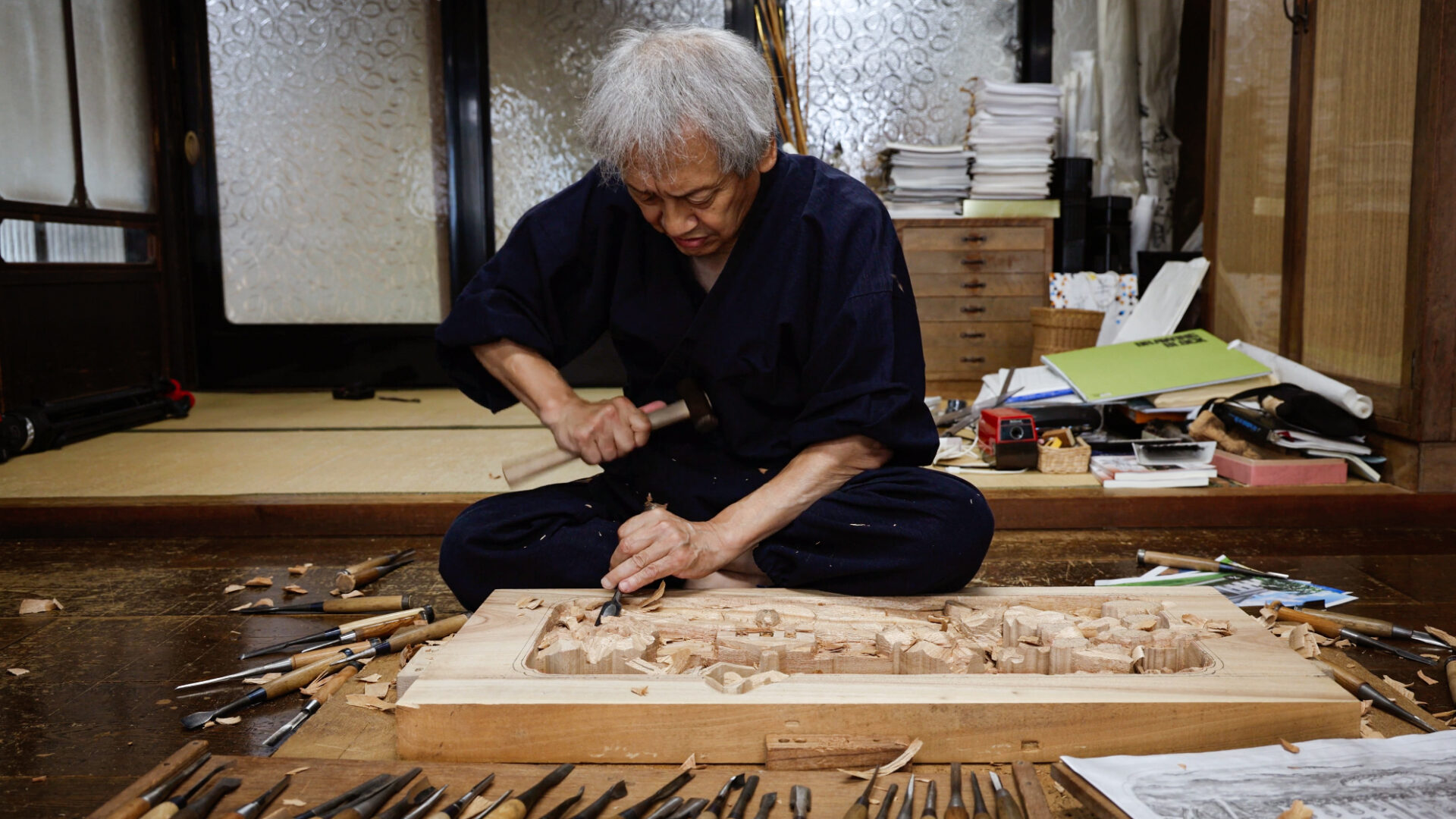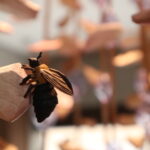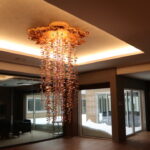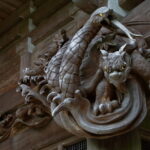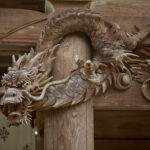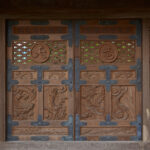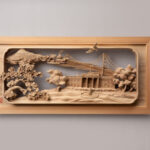Overview
Originating in Toyama Prefecture, Inami woodcarving (井波彫刻) developed in the Edo period during the restoration of the local Zuisen-ji Temple and flourished alongside temple carpentry and the tradition of ranma (transom) carving. Distinguished by extraordinary depth, precision, and spiritual artistry, this 250-year tradition has endured despite the pressures of rapid modernization. Today, Inami’s artisans apply their mastery, shaped through a rigorous five-year live-in apprenticeship,to classical temple work as well as traditional and contemporary commissions.
This program begins at 3:00 PM with a screening of the 60-minute documentary Voices in the Grain: Inami Woodcarving, produced by Poiesis in collaboration with the craftsmen community in Toyama. The film offers a rare and intimate portrait of the carvers, their history, and the lived philosophy behind the craft.
Following the screening, Master Carver Nambu Hakuun III, one of Inami’s foremost artisans, will introduce the history of the craft and the lineage of his own workshop, highlighting major works he has created across Japan. He will then guide the audience through each stage of the carving process, from sketching on washi paper to rough carving and detailed finishing, and present his newly created work, Bridge Between Japan and the U.S., which intertwines Japanese and American motifs as a gesture of cultural connection.
The demonstration portion will be interactive, offering attendees the rare opportunity to try carving by hand under the master’s guidance and to handle carving tools used in the craft.
The event concludes with an open Q&A, inviting participants to engage directly with the artist and reflect on the future of this living tradition.
Gallery
About the Presenters
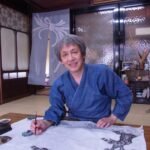
Nambu Hakuun
Inami Woodcarver
Nambu Hakuun is a third-generation master woodcarver from Inami, Toyama Prefecture. Trained under his father through a traditional apprenticeship, he has spent decades preserving and advancing the techniques of this historic craft. His works can be found at major cultural sites across Japan, including Senso-ji Temple in Asakusa. Beyond his practice, he is dedicated to training apprentices and fostering cultural exchange, sharing Inami’s carving tradition with audiences in Japan and abroad.
Poeisis
Event Organizer
Founded at Princeton University, Poiesis is an organization dedicated to preserving and revitalizing traditional handcrafted decorative arts from around the world. Poiesis’ current work centers on Inami woodcarving. By partnering directly with the Inami Woodcarving Cooperative, Poiesis brings this endangered decorative art to global audiences through documentation, exhibitions, academic collaborations, live demonstrations, and woodcarving commissions. These initiatives aim to create sustainable economic pathways for master craftsmen, enabling them to support apprentices and ensure the continuity of the craft for future generations.
